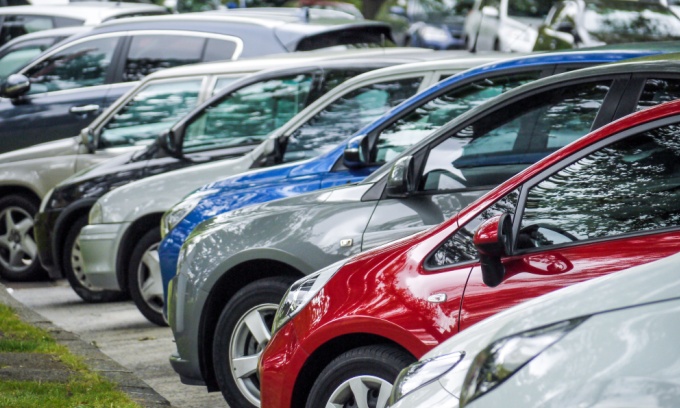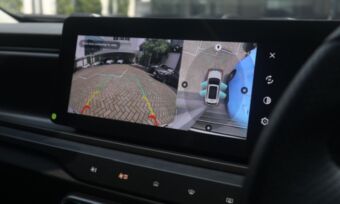What is car insurance?
Car insurance in Australia is a type of insurance you can take out to protect you financially if your car is involved in an accident, is stolen, or is damaged in a weather event or another insured event as listed in your policy. If your car is damaged or written off, or you damage someone else’s vehicle in an accident, the cost to you could be significant. A car insurance policy is designed to help cover these costs.
Comprehensive car insurance is the highest level of car insurance coverage in Australia. It provides a level of financial cover for damage to other people’s cars and property in an accident, damage to your own vehicle caused by fire or theft, and accidental damage to your own vehicle, regardless of who’s at fault. It may also provide additional types of cover, such as damage to your car from storms and hail or vandalism, depending on the insurer and policy you choose.
A comprehensive policy may also let you choose to insure your vehicle for its market value or an agreed value, meaning you could get a say in how much you’ll be paid out in the event that your car is stolen or written off, depending on the policy. However, your choice may affect the premiums you pay.
Note that comprehensive car insurance does not cover you for injury or death caused to other people in an accident—that’s where Compulsory Third Party (CTP) insurance comes in.
Finding the car insurance policy that’s right for you could depend in part on what you can comfortably afford, so it may be worth considering the type of cover that suits your needs and your budget. For example, would you prefer the high level cover generally offered by a comprehensive policy, or would a lower level of cover be enough?
If you decide that comprehensive cover is right for you, you can start your search by comparing car insurance policies with Canstar or viewing our latest Car Insurance Star Ratings and Awards before getting a quote online. The awards recognise the car insurance providers that are providing outstanding value products to Australian consumers.
What does car insurance cover?
Car insurance can cover you for damage caused or costs incurred by unforeseen accidents or events involving your insured vehicle. The exact risks that are covered will depend on the level of cover you have. For example, third party insurance generally only covers costs if you damage someone else’s property in an accident, whereas comprehensive car insurance provides protection for a more extensive range of risks. Depending on the insurer and policy you choose, comprehensive car insurance could cover:
- Accidental damage
- Theft/vandalism
- Storm/flood
- Fire damage
- Earthquake
- Towing costs
- Transport from an accident
- Hire car costs following theft
- Hire car costs following a no-fault accident
Types of car insurance available in Australia
There are four main types of car insurance available in Australia: Compulsory Third Party (CTP), Third Party Property Damage, Third Party Fire and Theft, and Comprehensive.
Comprehensive car insurance
Comprehensive car insurance is the highest form of coverage available in Australia and covers drivers for a range of risks, whether it’s the cost of damage you have caused to someone else’s vehicle in an accident, or damage or loss of your own vehicle due to an insured event.
Other forms of cover generally only cover drivers for damage they cause to other people’s property, or damage or loss of their own vehicle in limited circumstances (usually fire and theft). Comprehensive cover generally extends to other risks on top of these, such as damage caused to your own car by extreme weather or in an accident.
In addition, a comprehensive policy may cover you for some of the other costs associated with an accident or other insured event. For example, depending on the policy, it may cover the cost of a replacement vehicle like a hire or rental car while yours is being repaired or replaced, roadside assistance if your car is involved in an accident or breaks down or windscreen repair and replacement. Some insurers may let you purchase these covers as optional extras to add on to your policy.
Third Party Fire and Theft insurance
Third Party Fire and Theft insurance covers damage to the property of others, and some limited cover for your own vehicle if it’s damaged or lost because of fire or theft. It may also provide coverage for your vehicle (usually up to a limit) as a result of an accident involving an uninsured driver who is at fault. Third Party Fire and Theft insurance is the highest form of third party cover, but generally does not cover damage to your own car caused by an accident.
Third Party Property Damage insurance
Third Party Property Damage insurance covers the cost of repairing damage caused by your vehicle to other people’s property, such as their car. It generally also covers your legal costs if they sue you over that damage. Like Third Party Fire and Theft insurance, It may provide coverage for your vehicle (usually up to a limit) as a result of an accident involving an uninsured driver who is at fault. It does not cover damage to your own car in other circumstances, however. Third Party Property Damage insurance is usually the cheapest form of optional car insurance.
Compulsory third party (CTP) car insurance
Compulsory Third Party (CTP) car insurance is a mandatory form of insurance that all drivers must have in order to use Australian roads. It’s also referred to as Green Slip insurance in NSW and Motor Accident Injuries (MAI) insurance in the ACT. It covers your legal liability if you injure or kill someone in a motor vehicle accident. The specific conditions on this type of cover, including how and when it’s purchased and which insurance providers offer the cover, differs between states and territories.
Low kilometre and Pay As You Drive policies
Some providers may also offer discounted policies designed for customers who drive less, often marketed as ‘low kilometre’ or ‘Pay As You Drive’ policies. While both offer discounted premiums, they function in slightly different ways.
Low kilometre policies:
- Generally offer a fixed premium with a discount if you drive less than a set annual limit (e.g., under 10,000 km).
- If you exceed this limit, you may have to pay an additional or higher excess when making a claim.
- Your provider may require odometer readings at the start of your policy and at renewal.
- If you notice you’re exceeding the kilometre limit during the year and inform your provider, they may transition you to a standard, higher-priced policy so the additional excess does not apply.
Pay As You Drive policies:
- Usually come with a base premium, which you then add to by buying a set number of kilometres for the year (e.g., 15,000 km).
- This kilometre limit is typically more flexible, as you can top it up or buy more kilometres when required.
- A higher or additional excess usually applies if you exceed the limit, and in some cases, your provider may reject claims for incidents that occur once the limit has been passed—if you don’t top it up.
- Providers may require odometer readings at the start and renewal, or may use a tracking device or app to monitor usage.
What isn’t covered by car insurance?
In certain circumstances, your car insurance policy will not cover you. These circumstances are commonly referred to as ‘exclusions’—as they are excluded from cover. Some common car insurance exclusions are:
- Driving an unregistered or unroadworthy vehicle
- General wear and tear—including mechanical failure
- Modifications that make your car unsafe or illegal to drive, or any modifications that you haven’t informed your insurance provider of
- Having an overloaded car, whether that be too many passengers for official seating capacity, or carrying a load that is heavier (or bulkier) than what the car could reasonably be expected to tolerate
- Driving under the influence of alcohol or drugs (which could include some prescription medication)
- Driving without a valid driver’s licence, or not obeying the conditions or restrictions of your licence (such as not following the rules for P-Platers; or if someone is told by a medical professional that they shouldn’t be driving and does so anyway)
- Allowing restricted drivers to drive your vehicle (e.g. unlicensed drivers or those not covered by the policy)
- Driving dangerously or recklessly
- Providing false information to or withholding information from your insurer
- Using your car for commercial reasons (unless you have disclosed this to your insurer and it has agreed to cover you for this kind of use)
- Using your vehicle for illegal activity at the time of the event you are making a claim for
- Using your vehicle for drag and street racing or for motorsports (both amateur and professional).
What is an excess in car insurance?
An excess is an amount of money you pay your insurer towards the cost of your claim. Different excesses might apply to different types of claims, so you should check your policy for details. You may be able to pay a lower premium if you agree to a higher excess, but you need to be sure that you could afford to pay the excess unexpectedly in case of an emergency.
How do I compare car insurance quotes online?
If you’re looking to compare comprehensive car insurance policies, Canstar’s Star Ratings could be a good place to start. Our Ratings use a sophisticated and unique methodology that compares both price and features across products on our database. You can compare policies based on their Star Ratings using our comparison tables.
In addition, these are some of the other factors you may want to take into account when comparing car insurance policies:
- The premiums being charged
- The level of cover you’re getting
- Whether the risks most relevant to you are covered by the policy (e.g., if your area is prone to flooding, you may want a car insurance policy that covers this)
- The level of service the insurer offers (e.g. its claims service)
- Whether the provider allows you to pay monthly at no extra cost
- Any discounts offered by the provider
- Are there any additional inclusions, either complimentary or at at any extra cost (e.g., roadside assistance).
What’s the best car insurance for me?
The best car insurance policy for you will depend on your circumstances and the level of cover you’re looking for. In assessing policies, you may like to ask yourself questions such as:
- Are you looking to keep premium costs down or are you willing to pay more for a higher degree of cover?
- How often do you think you’ll need to claim on the policy? Opting for a higher car insurance excess could save you some money on premiums, in exchange for leaving you with higher out-of-pocket costs should you have to make a claim.
- How often do you drive your car? If you rely heavily on your car, you might want to prioritise a higher level of cover so you won’t be off the road for too long if your car is damaged.
- Are there any particular risks that you want cover for? For example, is your area prone to flooding or car thefts?
- Would it be better for your budget to pay your premiums monthly or annually, and would you be prepared to pay more overall for the convenience of monthly payments?
- If you’re looking for comprehensive cover, how have Canstar’s expert researchers rated the policies you’re considering? This can give you an idea of which policies offer the best value for money overall, based on the factors considered.
How can I get cheap car insurance?
Some ways to keep the cost of your car insurance down can include:
- Shopping around: If you’ve been with the same provider for a while, you may find a new provider who can offer you a better deal.
- Paying annually: Some providers offer discounts to customers who pay for a year upfront, rather than paying month to month.
- Increasing your basic excess: A higher excess can mean lower premiums, but the trade-off is you’ll have more to pay if you need to claim.
- Asking about a low-kilometre discount: If you drive your car under 15,000kms per year, then your provider may reduce your premiums.
- Restricting the age of drivers: Insurers tend to view older drivers as less risky, so restricting under-25 drivers from your policy could help you save.
When you’re shopping around for cover, you may simply want to find the cheapest car insurance policy. It can be important to also keep in mind the level of protection you’re getting for your money. For example, with optional forms of cover, Third Party Property Damage may be the cheapest car insurance in most situations, but it won’t cover you if your car is damaged in an accident or stolen.
How much does car insurance cost?
The cost of car insurance, known as the premium, is typically calculated by insurers based on the level of risk they associate with the driver and their vehicle, plus the level of cover offered by the policy. To calculate the risk, insurers generally take the policyholder’s personal circumstances into account—such as their age, gender, driving and claims history, and where they live—as well as details relating to the vehicle, including its make, model and age. Generally speaking, the greater the risk the insurer believes they’re taking on by insuring a driver, the higher that driver’s premium will be.
The type of policy you’re buying will also dictate the cost of car insurance. For example, a comprehensive car insurance policy will typically cost more than a Third Party Property Damage policy, but will generally offer a higher level of cover.
To give you an idea of cost, Canstar has calculated the average costs of comprehensive car insurance policies on its database.
What’s new in car insurance in February 2026?
- Bushfires in Victoria at the start of January resulted in 3,123 insurance claims at an estimated cost of more than $200 million, says the Insurance Council of Australia (ICA). Claims covered property and motor vehicles, as well as commercial and business interruption. Insurers are said to be prioritising these claims.
- Canstar Research has found that over half of Australian car owners have delayed, reduced or cancelled car-related expenses in the past year due to cost-of-living pressures. Of the 2,705 car owners surveyed, 21% said that they’d reduced or cancelled non-compulsory car insurance (e.g., comprehensive and third party policies).
- The cost of car insurance premiums in Australia is rising, with Canstar’s latest Car Insurance Star Ratings and Awards finding that annual costs rose by 5.8% between 2024 and 2025, translating to an increase of $122 per policy.
- The typical comprehensive car insurance policy in Australia now costs $2,226, but Canstar research found that, on average, motorists can save approximately $692 per year by moving to a top-rated policy.






















